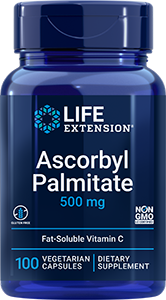
Newsletter
Newsletter
Higher Vitamin D Levels Associated With Fewer MS Symptoms
Higher vitamin D levels associated with fewer MS symptoms
Tuesday, October 9, 2012. The August, 2012 issue of the Annals of Neurology reported the finding of researchers at the University of California, San Francisco of a reduction in brain lesions and disease activity in multiple sclerosis (MS) patients who had higher levels of vitamin D. Multiple sclerosis is an autoimmune disease that can result in severe disability. The decreased prevalence of the MS in lower latitudes has led researchers to suggest a protective effect for sunlight and the vitamin D it produces in the body against the risk of developing the disease. The current discovery is the result of the five year EPIC study of 469 men and women with multiple sclerosis who underwent yearly blood testing for vitamin D and brain magnetic resonance imaging (MRI) to evaluate disease progression. Ellen M. Mowry, MD, MCR and her associates determined that with each 10 nanogram per milliliter increase in serum 25-hydroxyvitamin D there was a corresponding 15 percent reduction in the risk of new brain lesions as well as a 32 percent lower risk of areas of active disease as indicated by white spots visible upon MRI examination. These areas reveal inflammation of the nerve fibers' myelin sheath, which provides insulation and facilitates the transmission of electric signals. Increases in new lesions and areas of active disease in early multiple sclerosis have been correlated with a greater risk of long term disability. Having a higher vitamin D level was also associated with a reduced risk in becoming disabled, and a nonsignificant decrease in relapse risk. Relapses in MS are characterized by attacks of symptoms, including blurred vision, weakness and numbness. The most common form of MS is known as relapsing-remitting MS, in which patients undergo symptomatic and asymptomatic periods. The study also revealed that vitamin D levels during a particular year were predictive of the appearance of new lesions and active disease spots during the following year. "Vitamin D is a hormone, and any medication really does need to be thoroughly tested before we definitely recommend it," noted Dr Mowry, who is now affiliated with Johns Hopkins University School of Medicine. "That's the main reason why we are now performing a randomized trial of vitamin D supplementation." |
||||||||||||||||
 |
||||||||||||||||
|
||||||||||||||||
|
||||||||||||||||
 |
||||||||||||||||
|
||||||||||||||||
|
||||||||||||||||










